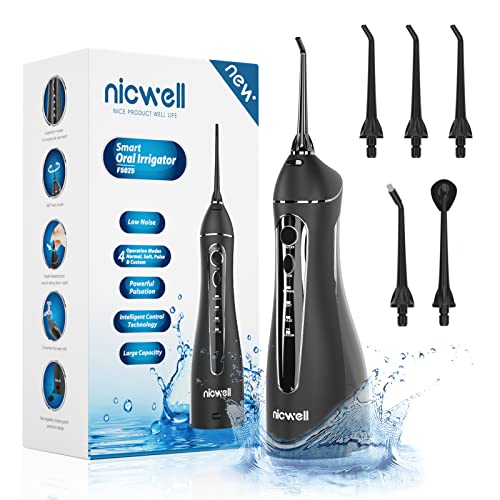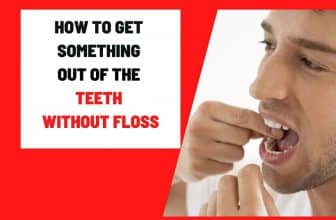
Flossing can bring more attention to your hypersensitive gums, and you may even see your teeth bleed as a result of flossing, but you wonder why your teeth hurt after flossing.
Brushing your teeth, cleaning with mouthwash, and flossing are crucial parts of your oral hygiene routine.
Pain from flossing is a common thing. “Can flossing too hard cause tooth pain?” “Can teeth hurt after flossing?” Are the commonly asked questions by people.
While brushing and rinsing alone may not have caused you any pain, flossing is a likely source of discomfort. Flossing is considered an essential aspect of oral hygiene by the American Dental Association.
As a result, this article aims to explain what triggers this pain and how you can get relief. Know how to handle tooth pain while flossing in the sections below.
Do you floss regularly?
This is the most frequent cause of post-flossing discomfort. After all, not everyone flosses as frequently as they should.
If you haven’t flossed in a while, you may have a plaque buildup between your teeth, which causes pain during flossing. This plaque is tough to break through, resulting in pain and bleeding.
7 reasons why do teeth hurt after flossing
-
Using the Wrong Flossing Technique
Why do my teeth hurt after I floss? Before asking this, do you remember how you flossed before? If you floss too often and too hard, your gums or teeth may hurt or become irritable, which is undesirable.
This damage can accumulate over time, causing awful pain whenever you floss or brush your teeth. It’s not a good idea to stop flossing if your teeth or gums get hurt after flossing. If you can’t manage regular floss, there are other options, such as:
- Water flossing: This treatment removes bacteria and plaque with a stream of water.
- Interdental Brushes: Small brushes are used to clean in between your teeth.
- Dental Pick: You can use these dental sticks to remove plaque from your teeth and gums. They are typically constructed of wood or plastic.
- Buy Waterpik sonic fusion flosser with a toothbrush or get the affordable Waterpik cordless express water flosser WF 02 for daily flossing.
-
Sensitivity of the teeth
It might be painful when you floss or clean your teeth if you have sensitive teeth. Tooth sensitivity can be caused by cavities or gum disease. You should see your dentist as early as possible to determine the source of your sensitivity and have it treated before any further harm occurs.
-
Gum disease
Gum disease, also referred to as a periodontal disease, is characterized by bleeding gums after flossing. Tooth soreness after cleaning or flossing is another sign.
Your gum hurts after flossing because you’re cleaning and removing plaque from parts of your teeth and gums previously hidden.
Consult your dentist about additional treatment options, such as a thorough cleaning, which can reduce plaque buildup faster and bring you back to feeling healthy and pain-free.
-
You’ve recently started flossing as part of your cleaning routine.
If your teeth and gums aren’t used to flossing, they might not like it and experience toothache or gum discomfort. The soreness you’re experiencing most of the time is caused by your gums and teeth becoming accustomed to appropriate cleaning.
It will take a few days for your gums to adjust to flossing, and everything will return to normal.
-
Fillings in the teeth
When brushing, flossing, or biting anything after having a filling, you may suffer pain in the afflicted tooth.
-
Tooth Decay
Have you ever considered the true “objective” of Dental care? Your main goal is to get rid of the dangerous germs in your mouth.
This can result in tooth decay in certain parts of your Mouth. And flossing in particular locations is likely to be painful.
To complicate things, tooth decay frequently arises in the same spaces where you floss (between the teeth); thus, flossing while suffering from tooth decay is sure to trigger this pain.
-
Brace and Retainer Problems
Are you wearing braces or a retainer? In that situation, flossing may be painful under specific circumstances.
For instance, if you recently had your braces adjusted, soreness after flossing is normal. In that instance, your teeth are most likely hurting due to the correction, not because of the method you floss.
How Often Should You Floss in a Day?
How you floss is more critical than the number of times you floss. If you floss quickly multiple times a day, you will defeat the goal because much of the buildup and bacteria would be left intact. To attain the best benefits, floss your teeth slowly and thoroughly at least once a day.
Is Daily Flossing Bad For You?
Gentle flossing once a day will benefit both your oral and general wellness. However, flossing maybe once or twice a day and violently can be damaging and even lethal to your gums and teeth.
Is Flossing Harmful to Your Teeth?
Flossing too forcefully or flossing too quickly can cause harm to your tooth enamel and gum tissues. Relax if you’re concerned about the expiration date of your dental floss! Floss, like a toothbrush, can last indefinitely, so there’s no need to rush.
Incorrect flossing procedures might harm your oral health. Receding gums can expose the tooth base, causing injury and pain. This is one of the reasons why people complain “Why do my teeth and gum hurt after flossing?” Floss lightly only once each day.
Top 3 Picks Cordless Oral Irrigator Water Flosser
Does flossing teeth hurt? What should you do next?
Overall, flossing regularly and properly is the most effective strategy to reduce gum pain. You can try the following more specific tips and tricks:
Steps to Relieve Gum Pain
- Firstly, and maybe most significantly, make sure you floss regularly. It would be great if you floss at least once a day.
- Second, while this may seem apparent, you should floss between your teeth with floss.
- Be gentle when flossing your teeth. It would help if you avoided “snapping” the floss into place with force, and excessive force might cause pain and damage to your gums over time. Instead, move the floss slowly between your teeth.
- Take your time, and don’t rush through flossing. Over time, hurried flossing can cause receding gums.
- Remember to floss beneath the gum line, but do it lightly and carefully to avoid gum bleeding or injury.
- Attempt a different floss brand. If you’re still experiencing difficulty, flosses are available with a softer, gentler covering.
If these suggestions are not helpful, consult your dentist about alternate flossing methods, like Waterpik or water floss machine.
Speak with a professional. Your dentist may give you more extensive instructions on flossing and address any other queries you may have.










